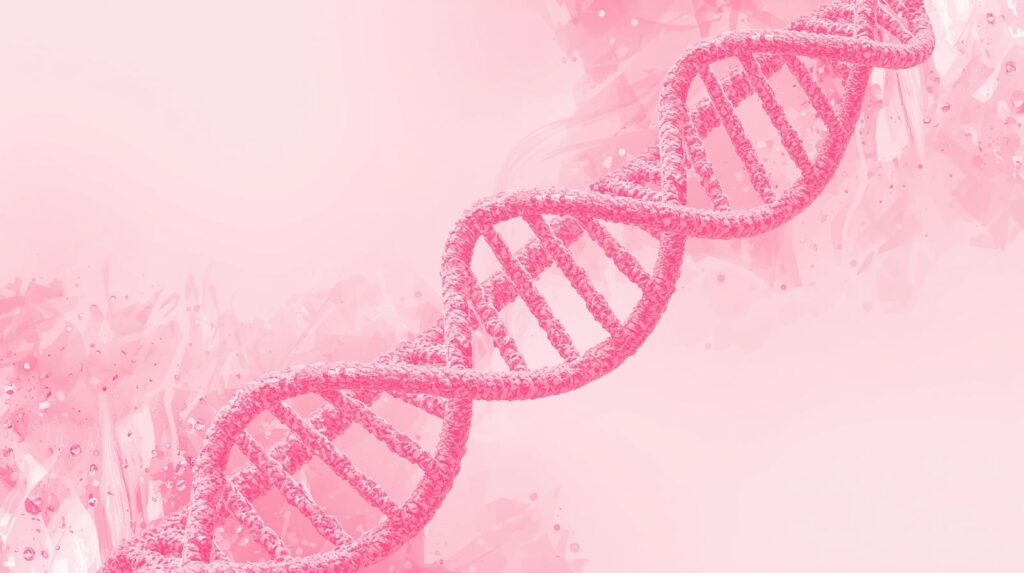
Introduction
Breast cancer is influenced by many factors, including genetics. While most cases are not inherited, approximately 5% to 10% are linked to specific gene mutations. Genetic testing can identify women at higher risk, empowering them to make informed choices about prevention and early detection.
In this article, we’ll explore when to consider genetic testing, which genes are involved, what the results mean, and how testing can guide your breast health strategy.
What Is Genetic Testing for Breast Cancer?
Genetic testing looks for specific mutations in genes that affect how cells grow and divide. In breast cancer, the two most well-known genes are:
- BRCA1 (Breast Cancer Gene 1)
- BRCA2 (Breast Cancer Gene 2)
Mutations in these genes significantly increase the lifetime risk of breast and ovarian cancers. However, they’re not the only ones involved. Other genes like PALB2, TP53, and CHEK2 may also contribute.
Who Should Consider Genetic Testing
Genetic testing isn’t for everyone. It’s most useful if you have risk factors suggesting a hereditary predisposition. You should consider testing if:
- You have two or more close relatives with breast or ovarian cancer
- A relative was diagnosed before age 45
- A family history of male breast cancer exists
- There are known BRCA mutations in your family
- You have Ashkenazi Jewish ancestry (higher prevalence of BRCA mutations)
If these apply, discussing your risk with a breast specialist is strongly recommended.
How the Testing Process Works
Genetic testing is simple and painless. It typically involves:
- Pre-test counseling – Understanding your family history and personal risk
- Sample collection – Either blood or saliva
- Laboratory analysis – Searching for relevant gene mutations
- Post-test counseling – Discussing results and next steps
This process ensures that testing is done ethically and accurately, with proper support at every stage.
Understanding the Results
Genetic testing provides three possible results:
- Positive: A mutation increasing cancer risk is detected. Prevention, surveillance, or risk-reducing options will be discussed.
- Negative: No known mutations found. Follow general screening guidelines based on age and risk factors.
- Variant of Uncertain Significance (VUS): Mutation found but unclear impact. Continue monitoring and reassess as research evolves.
👉 A positive result does not mean you will definitely develop cancer — it means you have a higher risk and need tailored prevention.
Preventive Strategies for High-Risk Women
If testing shows you carry a high-risk mutation, several options exist:
1. Enhanced Surveillance
- Annual mammograms and ultrasounds starting earlier than usual
- Annual Breast MRI for more detailed screening
- Regular clinical exams
2. Lifestyle Modifications
- Maintain a healthy weight
- Exercise at least 150 minutes per week
- Reduce alcohol and avoid smoking
- Follow a balanced, plant-rich diet
3. Preventive Medications
Some high-risk women may benefit from chemoprevention, such as tamoxifen or raloxifene, under specialist guidance.
4. Risk-Reducing Surgery
Preventive mastectomy or oophorectomy can drastically reduce cancer risk. These decisions are highly personal and should always be discussed with a breast surgeon and a genetic counselor.
Emotional and Psychological Considerations
Genetic testing doesn’t just affect your medical care — it can also bring emotional challenges. Feelings of anxiety, uncertainty, or guilt are common, especially when sharing results with family.
Support groups, counseling, and open communication help manage this process effectively.
Myths and Facts About Genetic Testing
- “If I test positive, I’ll definitely get cancer.” → Not true. It only means higher risk, not certainty.
- “Testing is only for people with cancer.” → False. Genetic testing is preventive too.
- “If my test is negative, I’m safe.” → No, you may still develop cancer from non-genetic factors.
- “Genetic testing is painful and complicated.” → False. It’s a simple saliva or blood test.
FAQ – Genetic Testing for Breast Cancer
Q1: Should every woman get genetic testing?
No. It’s most valuable for women with significant family or personal risk factors.
Q2: What’s the ideal age to consider testing?
Typically after 25 years old, especially if there’s a strong family history.
Q3: How accurate is the test?
Modern tests are highly accurate, but results should always be interpreted by an experienced specialist.
Q4: What happens if my result is positive?
A personalized care plan can be created, including early screening and preventive strategies.
Key Takeaways
- Genetic testing identifies women at higher risk for breast cancer.
- BRCA1 and BRCA2 are the most common mutations, but others exist.
- A positive result guides prevention and screening — it’s not a diagnosis.
- Testing should be done with professional counseling and support.
About the Author
Dr. Annalisa Perego is an experienced Breast Surgeon in Dubai with more than 20 years in breast cancer care. She specializes in early detection, personalized screening strategies, and advanced surgical techniques, helping women make informed decisions about their breast health.

